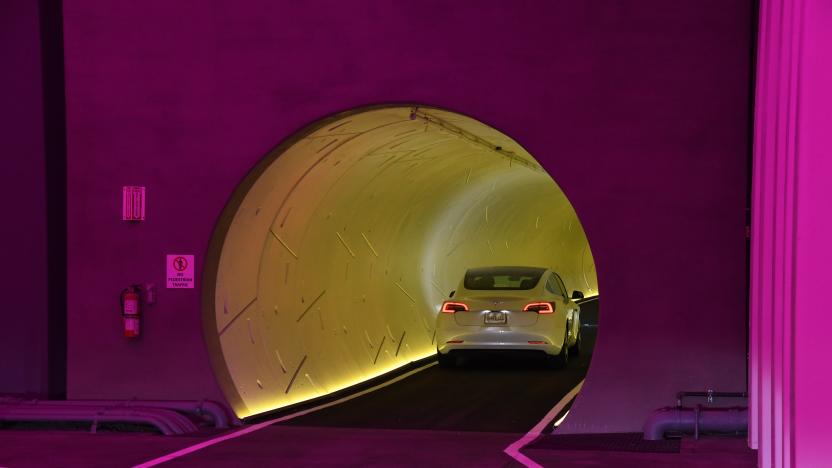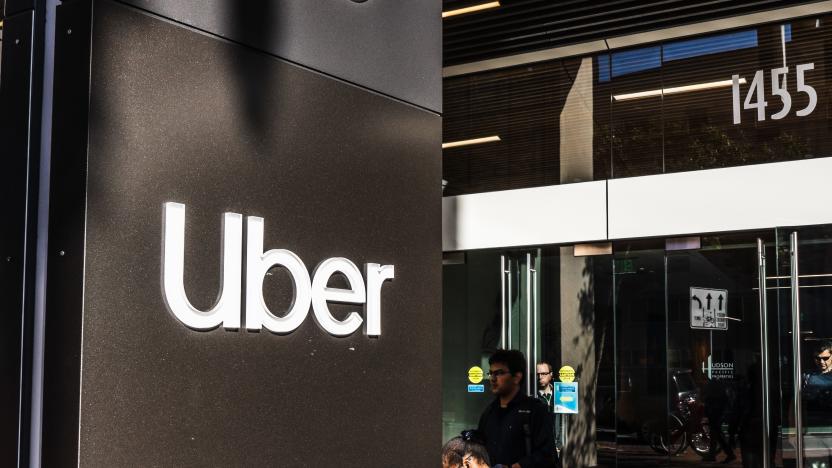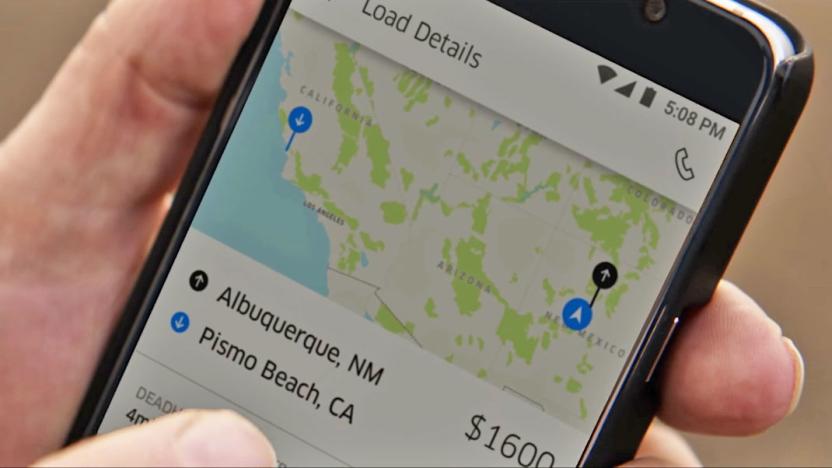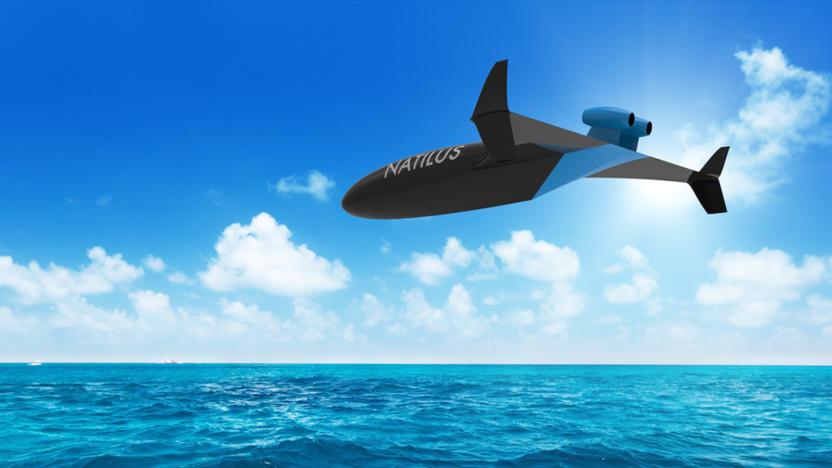freight
Latest

Elon Musk's Boring Company is reportedly pitching freight tunnels
The Boring Company is shifting its attention to wider, freight-friendly tunnels after its early commuter passages got a frigid response.

Uber plans to lay off another 3,000 employees
Less than two weeks after Uber shared plans to lay off 3,700 employees, the company announced that it will let another 3,000 workers go.

Uber ends autonomous truck program to focus on self-driving cars
Two years after Uber bought self-driving truck developer Otto to the tune of $680 million, the ride hailing company announced on Monday that the Uber Advanced Technologies Group is shuttering its autonomous truck unit. The company remains committed to further developing its self-driving car platform, which has only killed one pedestrian so far. Uber Freight, a separate service that helps connect shipping companies with drivers, is being spared as well.

The future of Daimler trucking is electrified and autonomous
If a company isn't talking about the transformation of transportation there's a good chance it might get caught flat-footed when cars start driving themselves loaded with battery packs. Mostly these conversations center around passenger vehicles, but trucks could do with some cleaning up, too, and one of the companies on the forefront of that is Daimler.

Uber is ready to help truck drivers find cargo
Last year, Uber's interest in the shipping and trucking industry started to take shape with the (now controversial) purchase of Otto. A few months later, reports started swirling that Uber would be creating a platform to connect drivers with cargo in the same way it currently connects drivers with passengers. That service, simply called Uber Freight, officially launched this week.

Gigantic drones may be the key to low-cost air shipping
Wonder why some companies still ship products on boats instead of speedy aircraft? It's because air freight is much more expensive -- the costs of the crew and fuel quickly add up. Natilus, however, thinks drones might offer a solution. The startup is prepping enormous, 200ft-long drones (roughly the size of a Boeing 777) that would haul up to 200,000lbs of cargo over the ocean. They'd theoretically reduce the cost of air freight in half by eliminating the crew and improving fuel efficiency. And while the drone likely wouldn't be cleared to fly over populated areas, that wouldn't matter -- it's designed to land on water and unload its goods at a seaport.

Amazon is now managing its own ocean freight
Amazon has been working for a while now to build out its shipping and distribution network. Now the online retailer has started coordinating its own shipments from Chinese merchants to its warehouses in the US via ocean freighters. The Wall Street Journal reports that the company doesn't own any ships, but it's working as a freight forwarder and logistics provider. These are the companies that reserve space on freighters and handle trucking shipments from port to a warehouse. WSJ says that Amazon has coordinated shipment of 150 containers from China since October.

Amazon's cargo jets cut shipping costs by carrying the light loads
If you got a speedy delivery on a last-minute gift at the height of holiday season, you might have Amazon's fleet of cargo planes to thank for pulling off a minor miracle. Although Amazon says the fleet is only meant to supplement Fedex and UPS at the moment, its own air cargo business will eventually play an important part in letting Amazon handle end-to-end logistics. According to a new report from Reuters, Jeff Bezos and company have already figured out how to leverage their private fleet to minimize overhead while getting the most out of their shipping partners at the same time.

Uber's trucking plan will connect drivers with cargo
When Uber bought up Otto's self-driving truck platform, the initial reaction was to imagine a future fleet of autonomous trucks traveling coast to coast on America's interstates. According to a new report from Reuters, that reality is still years -- possibly decades -- away. In the short term, however, Uber plans to leverage the Otto purchase to build up its own freight business and make a name for itself as the go-to technology partner for the trucking industry.

California wants pollution-free freight vehicles
California is determined to make dramatic greenhouse gas cuts by 2030, and that could have some major ramifications for the state's big rigs and cargo ships. Governor Jerry Brown has ordered several agencies to draft plans for cleaner freight transportation, with a plan to eventually move to emissions-free ports, trains and trucks. Officials have until July 2016 to detail what they're doing, although they'll likely take considerably longer than that to implement their changes.

Northampton's testing magnetic underground delivery 'moles'
Northampton, England is considering an unusual approach to alleviating traffic congestion and air pollution. The city wants to replace the trucks currently clogging its two major motorways with underground delivery carts. The system from Mole Solutions, dubbed a "Freight Pipeline", will leverage linear induction motors to propel steel carts through dedicated tubes between various stations throughout the city. "Congestion is a global issue and we could take a significant volume of traffic off the roads, not just in the UK but in countries like China and India," Mole Solutions chief Roger Miles told reporters recently. "The bounds of this are limitless." The company asserts that these steel "moles" would be able make deliveries 24 hours a day without disturbing residents. Should the current feasibility and subsequent financial viability studies work out, the Mole system could soon be running under a number of UK city centers. Interestingly, this isn't actually the first time such a scheme has been implemented. In the late 19th and early 20th centuries, Chicago's business district was undercut by a massive web of subterranean delivery tunnels. New York City (as well as Boston, Philadelphia, Chicago and St. Louis) built a number of underground mail tunnels in 1897, though this series of tubes were never actually put to use.




